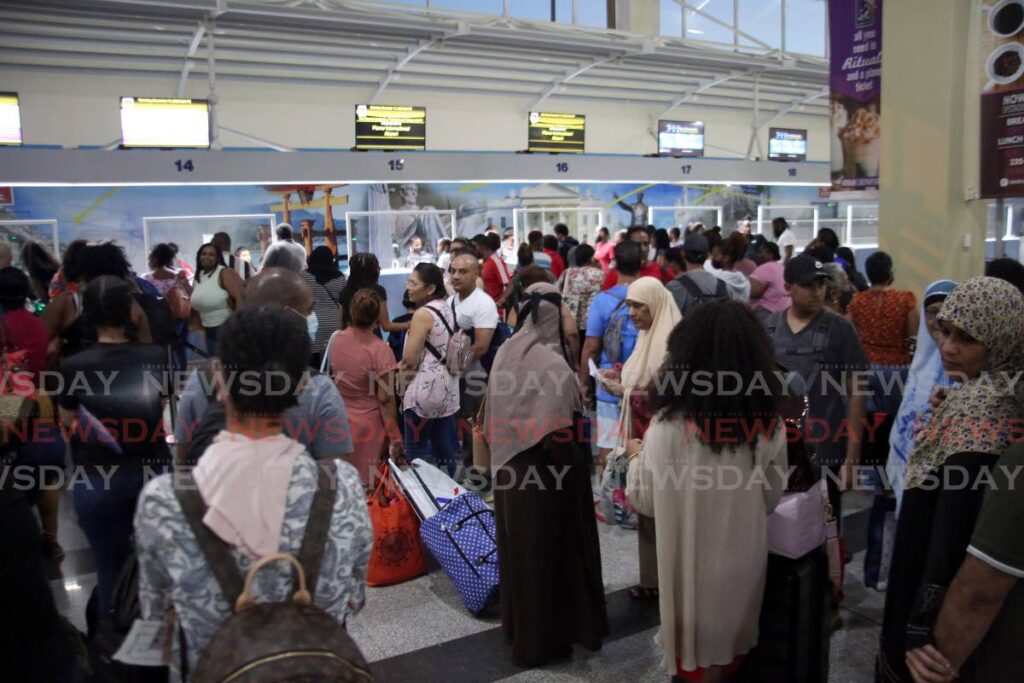Airline passengers conditions of carriage

RAMESH LUTCHMEDIAL
From its inception, commercial air travel has been plagued with flight delays and cancellations that caused missed connections to the final destination of passengers, disruptions to vacation packages and aborted business meetings. Other difficulties that air travellers face were loss or damaged checked baggage and confusion over jurisdiction for liability claims. In many instances passengers had very little recourse to recover hotel expenses, meals and other pecuniary losses due to delays, cancelled flights and damaged or missing baggage.
In October 1929, several countries met in Warsaw, Poland to consider a draft convention prepared by International Technical Committee of Legal Experts on Air Questions (Comité International Technique d’Experts Juridiques Aériens, CITEJA) relating to liability in the international carriage of passengers and baggage by air and which was under consideration since 1927. The meeting approved the final draft which came into effect in February 1933 and is commonly known as the Warsaw Convention.
The Warsaw Convention established rules for documents of carriage such as passenger tickets and tags for checked baggage. The convention also set rules for legal jurisdiction and limits for an airline’s liability as a result of personal injury and loss or damaged checked baggage and cargo. These rules are called the conditions of carriage and must be known to all passengers. It is included in most e-tickets.
In 1951 an ICAO legal committee reviewed the Warsaw Convention and prepared a new draft to replace the Convention. The International Conference on Air Law convened by the ICAO at the Hague, September 1955 decided to amend the convention rather than replace it. The Hague Conference adopted a protocol (the Hague Protocol) for the amendment of the Warsaw Convention. Between the parties of the protocol, it was agreed that the 1929 Warsaw Convention and the 1955 Hague Protocol were to be read and interpreted together as one single instrument to be known as “the Warsaw Convention as amended at the Hague in 1955.”
In March 1971, the Warsaw Convention was further amended by the Guatemala Protocol signed at Guatemala City.
In November 2003, the Montreal Convention 1999 came into effect and replaced the Warsaw Convention system in countries ratifying it. The Montreal Convention maintains some of the core provisions of the Warsaw Convention and achieves modernization of the conditions of carriage in a number of key areas. It protects passengers by introducing a two-tier liability system that eliminates the previous requirement of proving wilful neglect by the air carrier to obtain more than US$75,000 in damages, which should eliminate or reduce protracted litigation.
TT has not ratified the Montreal Convention and the Warsaw Convention still governs conditions of carriage in TT. This creates jurisdictional issues regarding passenger liability for flights between TT and the US.
On the other hand, TT has the most up-to-date and ground breaking airline passenger protection regulations among all the Caricom countries in the form of Civil Aviation [(No 17) Economic] Regulations made under the Section 33 (1) (g) of the Civil Aviation Act 2001. These regulations incorporate some elements of the Warsaw Convention and the Montreal Convention and represents international best practice for airline passenger protection such as what exists in the European Union (EU).
As an example, the TT and the EU regulations require airlines passengers with a firm booking to be provided with hotel accommodation, meals and transportation to and from the hotel when a flight is cancelled due to factors within the control of the airline such as maintenance issues or shortage of flight crews.
The TT regulations, like all other civil aviation regulations, are scrutinised by an intense legislative process. The regulations are submitted by the TTCAA to the minister with responsibility for aviation who takes a Note to Cabinet for consideration. It is referred by Cabinet to the Office of the Chief Parliamentary Counsel (CPC) for a detailed legal review.
After the review by the CPC, the regulations are submitted to the Legislation Review Committee (LRC) of Cabinet normally chaired by the Minister of Legal Affairs. The LRC considers, among other things, the policy rationale for the regulations and can amend or disapprove same. After the LRC process, the regulations are submitted to Cabinet for approval. Thereafter, the regulations are gazetted and takes effect. Further, the regulations are laid in Parliament for approval by negative resolution.
The Statutory Instruments Committee of the Senate reviews all new or amended civil aviation regulations and, thereafter, may make recommendations to the minister with responsibility for aviation.
The TTCAA must be commended for taking the initiative for the promulgation of the pioneering and first world Civil Aviation [(No 17) Economic] Regulations which provide relief to hundreds of airline passengers.
On May 8, US President Joe Biden said that his administration will write new regulations that will require airlines to compensate air travellers and cover their meals and hotel rooms if they are stranded for reasons within the airline’s control. The compensation would be in addition to ticket refunds when the airline is at fault for a flight being canceled or significantly delayed. It would give consumers in the United States protections similar to those in the EU.
As outlined at the White House by President Biden and Transportation Secretary Pete Buttigieg, the rules would focus on cancellations and long delays caused by things such as mechanical issues with an aircraft or lack of a crew.


Comments
"Airline passengers conditions of carriage"